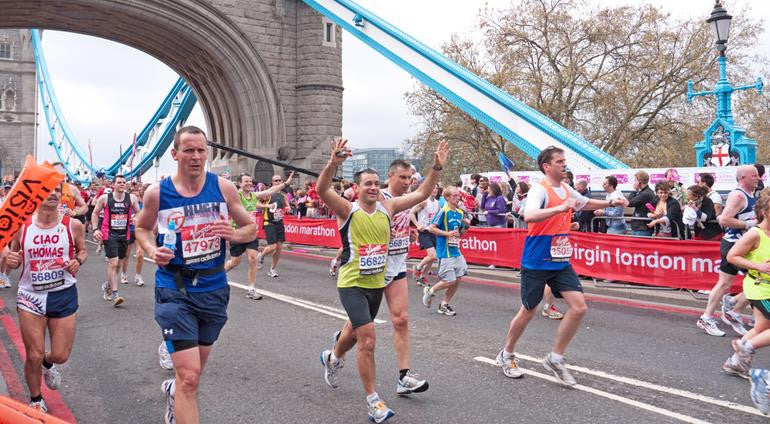By Steve Hobbs
 Have you ever embarked on a new training or fitness regime, only for the early enthusiasm to dissolve into demotivation and disillusion? For some people, this happens in the days after the first session, for others it takes an enforced break like a holiday or an injury. Demotivation and disillusionment are common issues in training.
Have you ever embarked on a new training or fitness regime, only for the early enthusiasm to dissolve into demotivation and disillusion? For some people, this happens in the days after the first session, for others it takes an enforced break like a holiday or an injury. Demotivation and disillusionment are common issues in training.
The Two Unasked Questions
Whenever I work with someone new, I ask:
- what do you want to achieve?
- why?
In my experience, too few people ask themselves either of these questions.
Goal setting for established athletes is usually straight forward. It's usually related to performance as measured by time - to achieve a personal best over a certain distance. For new or returning runners, it's rarely this clear.
Different Goal Types
- health-based (weight loss or perhaps getting fit again after having children),
- community-based (raising money for charity or meeting new people), or
- self achievement-based, like completing a 10k or marathon.
Get Specific
In each case, I always ask the athlete to quantify their goal, and then set a deadline on achieving it. For example, for someone new to running, we might set a goal of running continuously for 30 minutes in three months, or for an established athlete it might to be complete a sub 3 hour marathon in four months. This specificity is important in forming an appropriate training plan. Sounds easy? Setting a goal is not as easy as it sounds. It actually requires a lot of discipline because you must be honest about what you are capable of committing to given practical (e.g. time and other commitments) and physical (fitness and health) limitations.
Be Real
It's not good setting a goal of running a marathon in 2 months if you have only 1 hour a week to train and have never run before. Furthermore, it's not easy because being truly honest with yourself is brave. Few people like to admit limitations, and equally few like to stretch too far out of their comfort zone. Doing either requires courage. Setting the goal is important but is only half of the story.
Coming back to the "why"
Through any training programme, any run, and any race, there will be moments of self doubt, especially as you stretch yourself into the unknown. At these moments, we need to return to why are doing this. If your goal is to complete your first 10k, why is that important to you? If it was to raise money for charity, why did you choose that charity? Perhaps it is to support a close friend or family member that has suffered in some way. In which case, make that person become your motivation, your reason to keep going when your body is hurting and you feel like stopping or quitting. If your goal is to complete a personal best, why is that important to you? Who are you trying to show your capability to? Often it can be a spouse, children, parents, friends (or people that have said you couldn’t do it). Make them your motivation. When coaching people to run marathons, I ask them to use these people as a motivation trigger.
When you're deep into a run and feel like stopping, learn to stop thinking about the pain and switch your trigger on. Go back to the reason you're doing it in the first place. There are few greater feelings than achieving your fitness goals, and we owe ourselves the best possible chance of experiencing that feeling.
Before you put on those running shoes, set a stretching goal, ensure it’s achievable, and most importantly understand the motivation behind that goal. May demotivation and disillusionment never darken your door.





























































